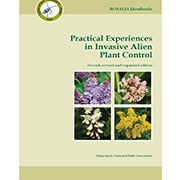The project 'Protection of the english oak in the cross – border area' ('Oak protection') is a joint project of Hungarian and Croatian forests (Mecsekerdő Zrt. And Croatian Forests d.o.o.).
Mutual issues and similar challenges in forest management have joined the experts on both sides of the Drava River in their efforts to find a solution to the challenges of preserving indigenous vegetation that is under increasing influence of climate change. Climate change, particularly frequent occurrences of drought or flooding, have a negative impact on the tree's vitality and habitat stability.
A crossborder groundwater monitoring system has been established through this project since groundwater level is of vital importance for the stability of English oak forest ecosystem.
Collected data, complemented by local meteorological parameters, lay the foundations for development and application of new forest management measures.
In addition to establishing the groundwater monitoring system, another important project goal was to find an effective model for suppression of invasive plant species. Invasive plant species easily invade degraded and destabilized habitats and their aggressiveness, rapid growth and expansion represent high threat to sensitive natural habitats.
In the process of fighting against invasive plants, it is most important to identify the potential danger promptly to be able to take appropriate action as soon as possible. By pictures and description of the invasive plant species most frequently found in our forest habitats, the brochure will help foresters and other nature lovers in recognizing plants that can endanger native vegetation.




 The second, revised and expanded edition of this volume was supported by ’Conservation of priority natural values in Turjánvidék Natura 2000 site southern unit’ LIFE+ Nature program (LIFE10NAT/HU/000020). For detailes on the project see
The second, revised and expanded edition of this volume was supported by ’Conservation of priority natural values in Turjánvidék Natura 2000 site southern unit’ LIFE+ Nature program (LIFE10NAT/HU/000020). For detailes on the project see